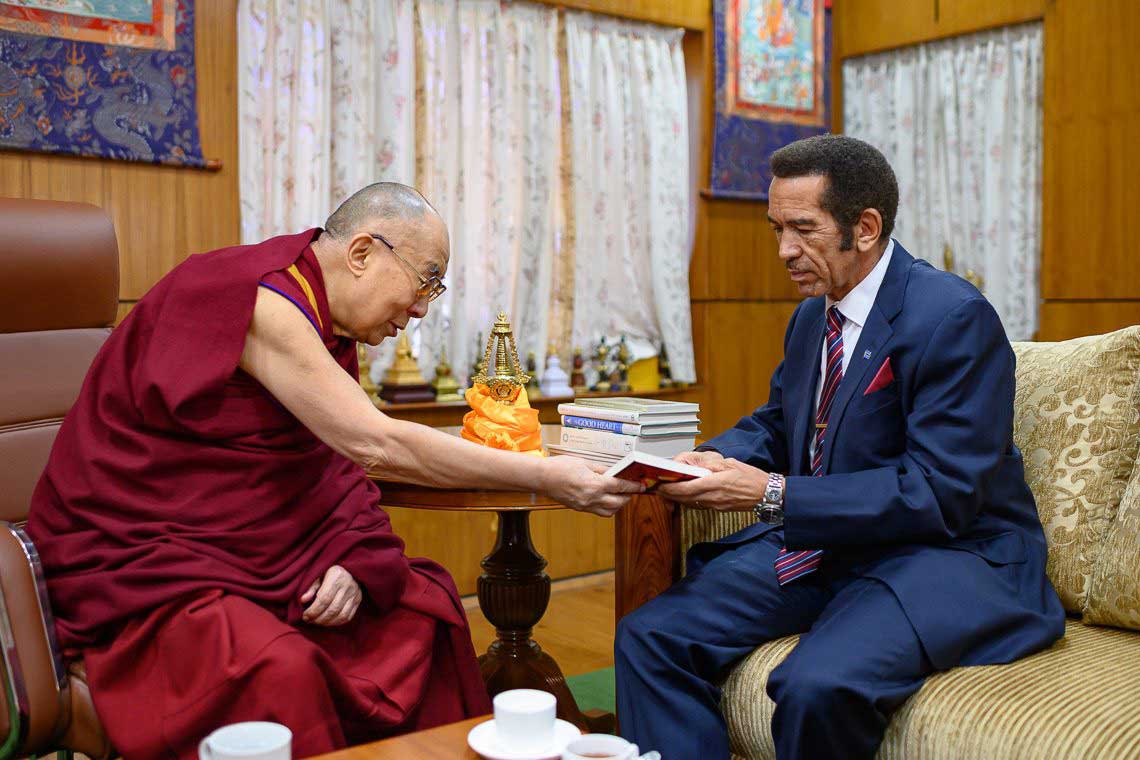Former President Ian Khama’s interview on SABC on Saturday March 9, 2019 was notable for the perception Khama has of his own magnanimity and that of the majority of urban Batswana. For Khama, Botswana has certainly gone backwards, as he claimed in the interview, but only because President Mokgweetsi Masisi is advancing his own agenda.
It is interesting to hear Khama speaking of the ruling Botswana Democratic Party (BDP) being in shambles and that the turmoil in the party is a result of its undemocratic leadership, unaccepting of a challenger. It is interesting because Khama was brought in to politics in 1998 to unite a fragmented and factional BDP. For Khama, the continued factionalism in the ruling party is not a sign of his own failure and the failure of the anti-democratic Automatic Succession which was introduced to steer his ascendancy to the country’s highest office, but rather the fault of President Masisi. Khama, has shown and owned in his 30-minute airing on SABC how manganous he thought he was as opposed to the autocrat he became.
Khama tried to speak eloquently on democracy but his understanding of it is synonymous with the thinking of royalty and hereditary entitlement. His interview is replete with “I selected Masisi,” “I thought he thought like me, which is why he was a good choice”, “We thought the same”. The mentality of leadership that has nothing to do with democracy but a sense of entitlement. Khama is so narcissistic as to publicly claim that he wants Masisi to “be the person I thought he was”, and all the while doing so on a platform, he so despised while he held office, the fourth estate and the pillar of any democratic dispensation.
Autocracy, kleptocracy, cronyism and fear were synonymous with Ian Khama at the end of his reign. For Khama to claim that “Masisi not doing good enough job (sic)” which is why he is the first president to face internal opposition is laughable. It may well be that it is because Masisi, unlike Khama has allowed internal dissent to find a voice. It may well be too that in allowing such dissent Masisi would object to it being under the auspices of a former president seeking to circumvent the national constitution and the 10 year term limit as President.
For Khama this is moving backwards as a nation and his entitlement to rule his pastoral estate from his questionably acquired Mosu home. Should we forget the his then private secretary Isaac Kgosi (later the Director General of intelligence services) attended Landboard hearings on the allocation? Should we forget that public funds were subverted from the BDF, that now claims it was unaware that the land was Khama’s personal property, to build a private airstrip?
Khama came to political office proclaiming his four and subsequently five Ds, he touted himself as a true democrat and anti-corruption champion. He flouted the former and compounded the latter. Using the power of the constitution as regressively as he could Khama tried to block judges from being appointed and argued that such power vested only in the presidency. Under Khama, the Attorney General had the gall to argue that the LGBTI community did not fit the constitutional definition of “persons” and that ARV treatment should be denied to fellow human beings.
Least we forget that under Khama, dissent was met with an immediate prohibited immigrant status, on a local level tender vanished and money became the key political currency, not ideology. Foreigners were deported en-masse, and Khama’s decision could not be challenged. Extract from page 9
(full in depth analysis on Page 9)




